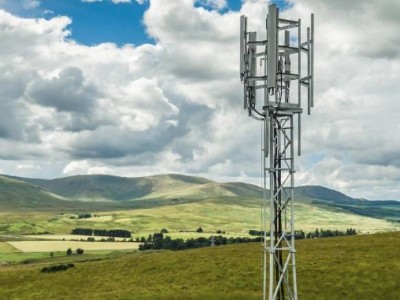Friday 2nd June 2023, 9:14am

A coalition of community, conservation and outdoor recreation groups, is calling on the UK Government to pause and review its digital connectivity programme - the Shared Rural Network.
The project – a collaboration between the UK Government and four big mobile phone operators (EE, O2, Three and Vodafone) – involves spending half a billion pounds to achieve 95 per cent mobile phone coverage across Britain.
The coalition is concerned that the focus of the scheme – on geography rather than population – makes little sense in Scotland’s wild and uninhabited mountain and upland landscapes.
The joint statement drawn up by the coalition has set out five demands to improve the programme:
Davie Black, Access and Conservation Officer for Mountaineering Scotland, said: “In a digital age, we need greater connectivity but this should focus on communities and businesses rather than map coordinates.
“We are greatly concerned that hundreds of unnecessary masts could be installed in sensitive mountain areas, along with tracks and other infrastructure, with the sole objective of meeting a pointless and purely geographical target.”
“It has unleashed a flood of applications for unnecessary mobile masts with the sole intention of filling in dots on a map,” says Mike Daniels, Policy Director of the John Muir Trust.
“We are completely behind the need for improving telecoms connectivity, which is vital for rural communities. However, contractors rushing to complete this scheme are bulldozing ahead without proper community consultation or respect for the fragile nature of precious wild places.
“Communities up and down the country are contacting us for help, saying that many of these masts are neither needed nor wanted. This seems a reckless and wasteful approach to achieving a vital outcome.”
It has been said that this is a benefit for hillwalkers. Although we understand the potential value for hillgoers of 4G rollout in remote areas, we support the ethos of equipping people with the skills to be safe and self-supporting in the mountains.
Telecoms masts in remote and wild areas are not generally seen as an essential contribution to making these remote experiences safer or more enjoyable although there may be some locations where it could be desirable. It may also lead to a false sense of security. Masts in otherwise wild landscapes detract from that sense of wildness.